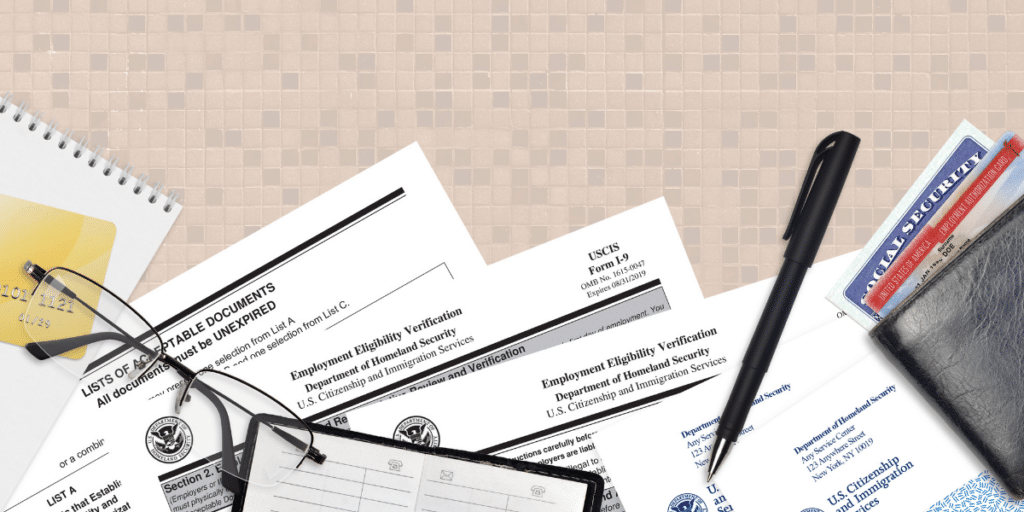As courts resume in North Carolina, it is not business as usual at the courthouse. Courts are operating with reduced capacity and are taking steps to allow for expansion of court proceedings in a manner to protect overall public health. Initially, based on the needs to ensure safe operations, in person hearings for family court matters in Mecklenburg County will be limited. As often as possible, the hearings will be by verified pleadings and Affidavits, or held virtually (e.g., via Web Ex). The following is a summary of the procedures for family court cases in Mecklenburg County.
Domestic Violence
Domestic Violence cases (restraining orders) assigned to Family Court Judges are being heard by the judge assigned to 4110 and will remain set in 4110 for the return hearing until further notice.
Temporary Child Support (TCS) and Post-Separation Support (PSS)
Cases on dockets from March 16, 2020 to June 1, 2020 will be re-calendared and re-noticed by family court. Going forward: Temporary Child Support (TCS) and Post-Separation Support (PSS) cases will be decided on Affidavits with limited exceptions. Parties shall file with the court and serve upon the other party the Affidavit of Financial Standing and serve upon the other party the required attachments to the Affidavit 10 days prior to the scheduled calendar date. Parties will be permitted to file testimonial affidavits and served upon the other party. During the time the matters are calendared, the judges’ courtroom will not be open, and the judge will use the afternoon to review each of the matters calendared. The judge will notify the parties/counsel of the ruling based on the review of verified pleadings, motions, financial affidavits and required attachments, and testimonial affidavits. If a matter is complex (such as one party being self-employed), a party may file and serve “Request for Hearing on Temporary Matter” at the time the Affidavit of Financial Standing is filed and served. If the judge grants a hearing, the judge’s clerk will notify the parties of the date and time of the hearing, and may be done by Web Ex.
Emergency Custody
Emergency Custody matters with a hearing date after June 1, 2020, will be heard by the assigned family court judge on the date and time and in the manner (i.e., Web Ex or in person) as the judge sets in the order. Emergency custody requires that the child is exposed to a substantial risk of bodily injury or sexual abuse, or that there is a substantial risk that the child may be abducted or removed from the State of North Carolina for the purpose of evading the jurisdiction of North Carolina courts.
Temporary Parenting Arrangements
Temporary Parenting Arrangement hearing requests should be made only in rare situations, which do not rise to the level of an emergency, but which significantly affect the well-being of the children, including but not limited to, relocation, repeated “snatching” of children between parents, one parent claiming the other parent is denying access to the child or is severely and unreasonably limiting access, or substance abuse or mental health issues which pose some risk for the children. In most cases, Temporary Parenting Arrangements will be handled on the verified and responsive motions without a hearing. Parties are permitted to include Testimonial Affidavits with the Motion or Responsive Motion. Testimonial Affidavits must be served with the Motion or Response and shall not include any statements not admissible under the rules of evidence. Exhibits may be attached to the affidavits only if they are directly related to the urgency raised in the TPA and would be admissible in evidence. The judge may exclude any Affidavits that do not comply with these requirements. The judge will rule on the submitted documents and notify the parties of the ruling. If the judge determines additional testimony is needed, then the judge may set a hearing, which may be via Web Ex.
Contempt Motions
For contempt matters that were set between March 16, 2020 and June 1, 2020, judges and case coordinator and/or clerk will ascertain whether the Motion is for Civil or Criminal Contempt. Civil contempts may be scheduled for a hearing via Web Ex. Criminal contempts require an in person hearing due to constitutional concerns. The cases set on the March 16, 2020 to June 1, 2020 dockets will be reset for an upcoming contempt day. Going forward, dockets will be staggered to allow for the courtroom to not exceed the maximum recommended occupants to allow for proper social distancing. Cases known to be for Civil Contempt may be scheduled via Web Ex.
Calendar Call
During the first several weeks following June 1, 2020, judges and case coordinator and/or clerk will reset the cases previously calendared for a date certain between March 16, 2020 and June 1, 2020. Going forward, published calendars will be posted approximately 23 days prior to the scheduled calendar call and will be done via Web Ex Conference. Fewer cases will be set on each judge’s docket to minimize the need for cases not being reached, continued, or set for standby.
Pretrial Conferences
All pretrial conferences scheduled between March 16, 2020 and June 1, 2020 will be rescheduled by Family Court to a date after June 1, 2020. Pretrial conferences are strongly encouraged to be handled by Consent Orders and submitted prior to the calendared date. Only those cases without Consent Orders will have an actual pretrial or status conference on the first Wednesday morning of the judge’s term and may be done by WebEx conference.
Trials
The judge’s clerk will be reaching out to cases that were already set on a calendar between March 16, 2020 and June 1, 2020 to determine a time certain for the case to be rescheduled.
People in Attendance for In-Person Hearings
To protect the health and wellbeing of everyone involved, only the party, their attorney and essential witnesses will be present at in person hearings and trials. Support persons, such as parents, new spouses, and friends will not come to court unless they will be called as an essential witness to the case.
As court proceedings resume, significant changes have been made to allow for expansion of court proceedings in a manner to protect overall public health. Courts are operating with reduced capacity, and only people with business at the courthouse will be allowed to enter. In addition to the procedural changes, masks or face coverings are encouraged, and in some locations may be required. If you have concerns or questions about how these changes may affect your case, contact a family law attorney at Dozier Miller Law Group.

CATEGORIES
Contact an Attorney
Our attorney offer specialized guidance and representation in a variety of practice areas.

REMEMBER: Always speak with your own attorney
This information is provided for informational purposes only; it is not offered as and does not constitute legal advice.
More Insights and Resources
Learn more about what to expect when facing a family law dispute in Charlotte, North Carolina from Family Law attorneys at Dozier Miller Law Group
Protect What Matters Most: Estate Planning for Every Stage of Life
Thinking about the future doesn’t always come naturally. Many of us get caught up in the day-to-day,…
Will a Separation Protect Me Financially?
Separation is never easy, especially when financial questions start piling up. Can you protect your savings? Will…
Practical Custody Arrangements for Families
Trying to figure out custody arrangements? You’ve probably come across terms like joint custody, primary custody, and…
Future-Proof Your Business Against Form I-9 Changes
Running a business is no small feat. Between managing your team, keeping customers happy, and planning for…
When Do You Need an Attorney for a Breach of Contract Case?
Contracts are the backbone of any good business relationship. They bring clarity, set expectations, and hold everyone…
Navigating Immigration Changes and Their Impact on Employment Law
No matter the size of your business, immigration law affects your ability to hire and retain the…
LGBTQ Families and Stepparent Adoption: What You Need to Know in North Carolina
As a family law attorney in North Carolina, I’ve seen many parents assume that their legal status…
What to Do When You Get a Bad Google Review
If you’re a Charlotte business owner, you know just how important your online reputation is. Around 98%…
Managing Your Immigration Status in 2025
The 2024 election brought significant shifts to U.S. immigration policy, many of which have already begun reshaping…
Plan Now for Summer Child Custody Arrangements
It might not feel like it, but summer break will be here before you know it. For…










